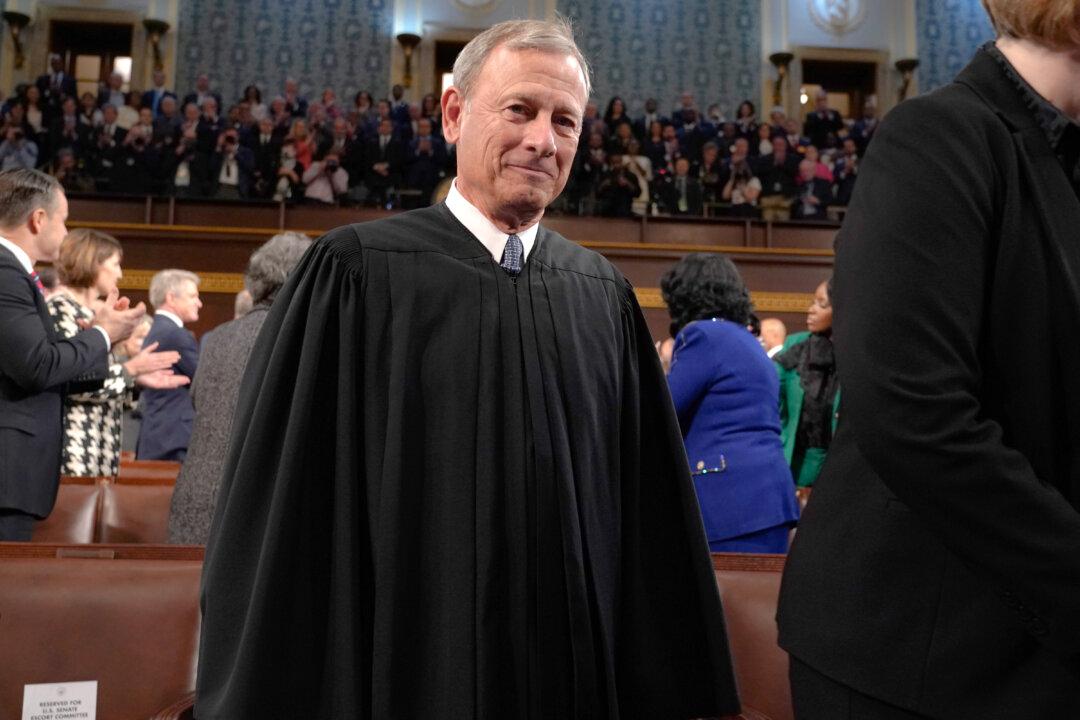Artificial intelligence (AI) is already changing the legal field and will have a major impact in the future, U.S. Supreme Court Chief Justice John Roberts said in his year-end report for 2023.
AI is already enabling people who cannot afford lawyers to find answers to questions such as how to fill out court forms, Justice Roberts said. He said AI can “increase access to justice” with tools that “have the welcome potential to smooth out any mismatch between available resources and urgent needs in our court system.”





